Infant Education
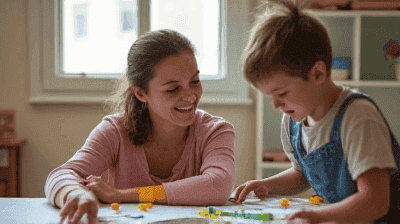
Parental Involvement: How Parents Can Support Early Learning at Home
Parental involvement is a critical component of early childhood education that significantly impacts children’s learning and development. When parents engage actively in their child's education, they create a strong foundation for academic success and holistic development. This article explores the various ways parents can support early learning at home, the benefits of parental engagement, and practical strategies for fostering a love of learning in young children.
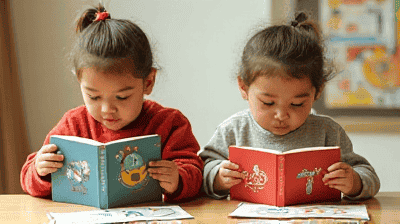
The Benefits of Bilingual Education: Teaching Young Children a Second Language
In an increasingly globalized world, the ability to communicate in multiple languages has become a valuable skill. Bilingual education, particularly for young children, offers numerous cognitive, social, and cultural benefits. This article explores the importance of bilingual education, the advantages it provides for early childhood development, and effective strategies for implementing second language instruction in educational settings.

Unlocking Language: Effective Literacy Strategies for Young Learners
Literacy is a fundamental skill that serves as the backbone of a child's education and personal development. From an early age, children are immersed in language, which shapes their understanding of the world around them. The ability to read and write fluently is crucial, not only for academic success but also for fostering critical thinking and effective communication skills. This article will explore effective literacy strategies for young learners, providing educators and parents with practical tools to
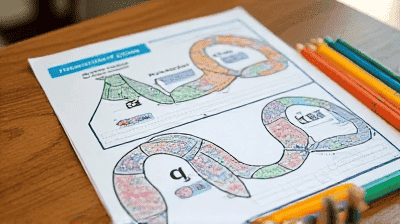
Crafting Curriculum: How to Design Engaging Lesson Plans for Preschool
Creating engaging lesson plans for preschoolers is a vital component of effective early childhood education. Young children are naturally curious and eager to explore, making the development of a well-structured and stimulating curriculum essential. Crafting an engaging lesson plan involves understanding the developmental stages of preschoolers, considering their interests, and implementing activities that foster learning. This article provides a comprehensive guide on designing lesson plans that capture th

The Impact of Nutrition on Learning: Healthy Eating Habits for Young Children
Nutrition plays a vital role in the overall development of children, particularly during their early years. The link between nutrition and ability to learn is well established, and healthy eating habits can greatly enhance cognitive function, emotional well-being, and overall health. As educators and parents strive to support the growth and development of young learners, understanding the impact of nutrition on learning is essential. This article will explore the relationship between nutrition and cognitive
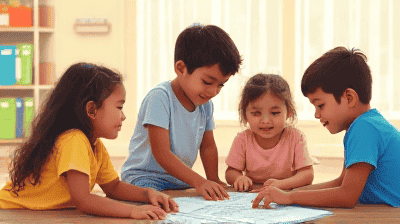
Cooperative Learning: Fostering Teamwork and Collaboration in Early Childhood
Cooperative learning is an instructional approach that emphasizes teamwork, collaboration, and mutual support among children. In the context of early childhood education, cooperative learning plays a vital role in fostering social skills, improving engagement, and enhancing academic success. This article will explore the principles of cooperative learning, its benefits for young learners, effective strategies for implementation, and the critical role of educators and parents in promoting teamwork and collab

Building Cultural Awareness: Teaching Diversity in Early Childhood Classrooms
Cultural awareness is a crucial component of modern education, especially in early childhood classrooms where children are just beginning to understand the world around them. As society becomes increasingly diverse, teaching cultural awareness and promoting diversity in the classroom is essential to fostering inclusivity, empathy, and respect among young learners. This article explores the importance of cultural awareness in early childhood education, provides strategies for educators to teach diversity, an
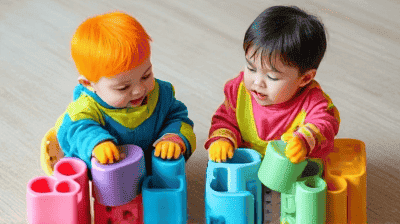
Incorporating STEM: Fun and Engaging Activities for Early Childhood Education
In today's rapidly changing world, the importance of STEM education—Science, Technology, Engineering, and Mathematics—cannot be overstated. Early exposure to these fields not only fosters curiosity but also develops critical thinking and problem-solving skills in young learners. By integrating STEM into early childhood education, educators and parents can create enriching experiences that stimulate children's natural interests and abilities. This article will explore the significance of STEM in early childh
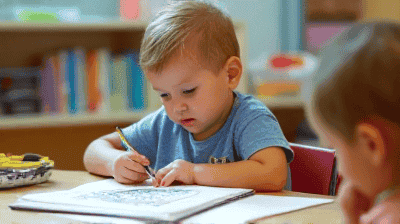
Assessing Young Learners: Tools and Techniques for Developmental Check-Ins
Assessment in early childhood education is a critical practice that informs educators, parents, and caregivers about a child's developmental milestones, learning styles, and educational needs. Regular developmental check-ins help identify strengths and areas for improvement, guiding instruction and supporting children on their learning journeys. This article will explore effective tools and techniques for assessing young learners, emphasizing a holistic approach to developmental check-ins that consider all

The Role of Outdoor Learning: Benefits of Nature in Early Childhood Education
As the world becomes increasingly urbanized, the importance of outdoor learning and nature experiences in early childhood education is often overlooked. However, studies show that engaging children with nature provides a wealth of benefits that extend beyond traditional learning environments. This article explores the crucial role of outdoor learning in early childhood education, detailing the benefits it offers to young learners, practical strategies for implementation, and the positive impact on holistic
